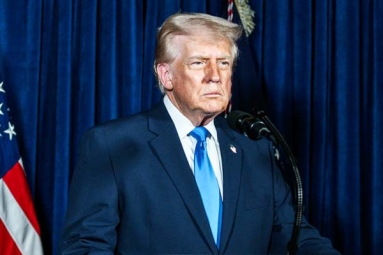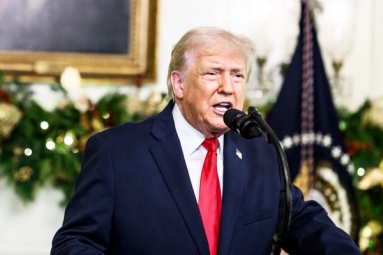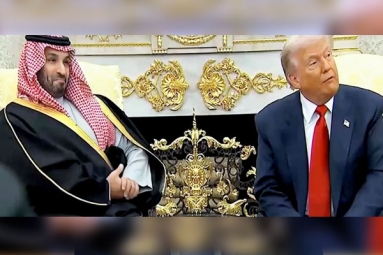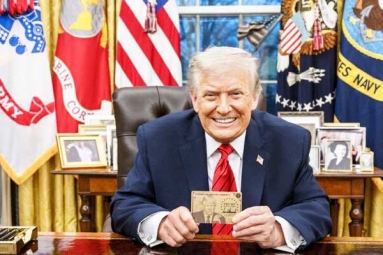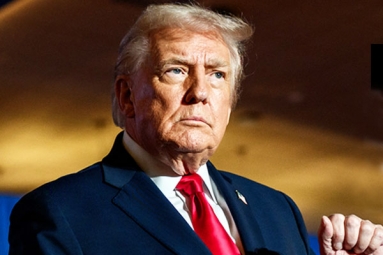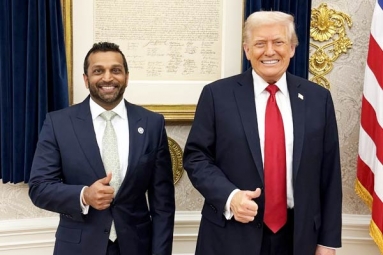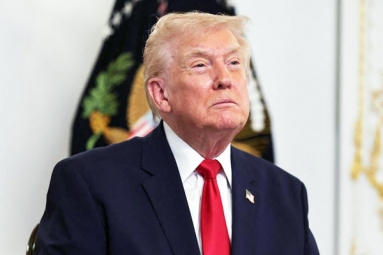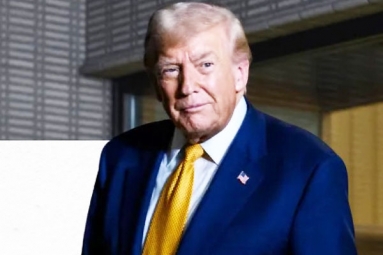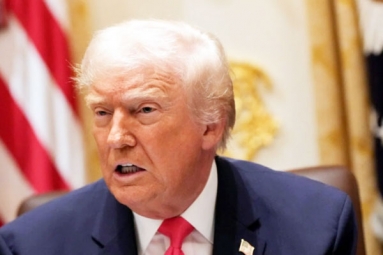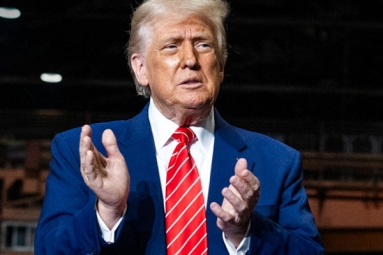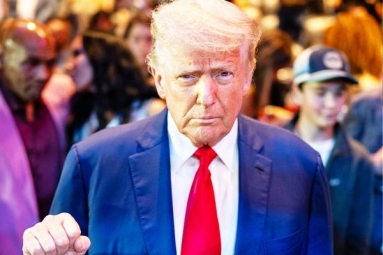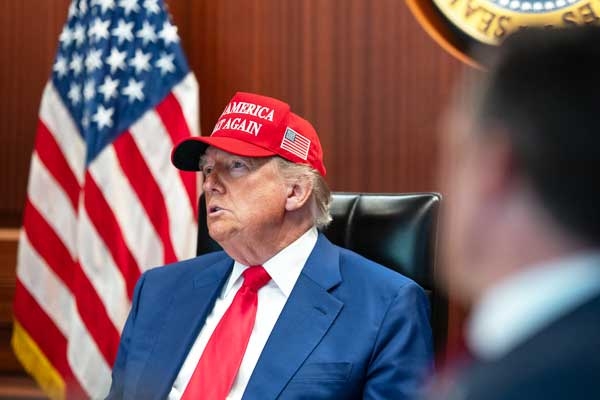
(Image source from: x.com/WhiteHouse)
Bullseye. Total destruction. Significant devastation. These were a few phrases employed by US President Donald Trump to characterize the effects of the nation’s airstrikes on Iran. Indicating that the airstrikes caused "significant devastation" to Iran's nuclear facilities, Trump noted that the most considerable damage occurred "deep below the surface." He remarked that "total destruction is an appropriate description" of the strike's outcome, concluding his social media message with: "Bullseye".
"Significant devastation has been inflicted upon all nuclear facilities in Iran, as demonstrated by satellite imagery. Total destruction is indeed fitting! The white structure depicted is embedded within the rock, with its roof lying well beneath ground level, and is entirely protected from flames. The most substantial damage occurred far below the surface. Direct hit!!!," Trump stated in a post on his Truth Social platform. US military forces deployed six GBU-57 Massive Ordnance Penetrator (MOP) bombs targeting the Fordow nuclear site, which is situated deep inside a mountain. Following more than a week of Israeli strikes directed at Iran's air defense systems and missile capabilities, Trump ordered airstrikes aimed at incapacitating Tehran's nuclear program.
In a Truth Social post on Sunday, Trump declared, "We have successfully completed our attack on three nuclear sites in Iran, including Fordow, Natanz, and Esfahan. All aircraft are now outside of Iranian airspace. A complete load of bombs was dropped on the main site, Fordow. All planes are safely heading back home," he wrote. Later that night, US Secretary of Defense Pete Hegseth referred to the operation as a tremendous success, asserting that the Middle Eastern nation’s nuclear initiative had been "devastated" and "total destruction" had been achieved. "We utterly devastated the Iranian nuclear program," Hegseth echoed Trump during a Pentagon media briefing in Washington, DC, on Sunday.
"The damage to the Nuclear sites in Iran is said to be “monumental.” The hits were hard and accurate. Great skill was shown by our military. Thank you!" –President Donald J. Trump pic.twitter.com/BJQPHa7XT6
— The White House (@WhiteHouse) June 22, 2025
While the US attacks on Iran’s critical nuclear sites faced intense backlash from nations such as Russia, China, and Saudi Arabia, Israeli Prime Minister Benjamin Netanyahu praised the military action. Iran, for its part, vehemently condemned the strikes and promised retaliation against US aggression. Ayatollah Ali Khamenei, Iran’s Supreme Leader, expressed dismay over the US strikes, cautioning of a severe and decisive reaction to both Israel and the US. He vowed that those responsible for their reckless provocation would face harsh punishment.
The retribution persists. The Zionist adversary has gravely erred and committed a significant offense; it deserves to face consequences, and such consequences are being enacted at this very moment, Khamenei shared on social media shortly after Iran unleashed a series of missile strikes within Israel in response to the US attacks from Sunday.
Previously, Iran's President Masoud Pezeshkian asserted that the US must face consequences for its actions. He criticized the United States for conducting airstrikes on Iranian nuclear facilities, marking these assaults as the most severe military intervention by Western forces against Iran since the Islamic Revolution in 1979.
In addition, Iran urged the United Nations Security Council to convene an urgent meeting to discuss the evolving circumstances in the Middle East and to collectively denounce the US aggression towards its nuclear establishments. Iran's UN Ambassador Amir Saeid Iravani accused Israel and the US of undermining diplomatic efforts, labeling all US claims as baseless and asserting that the nuclear non-proliferation treaty has been weaponized for political purposes. Meanwhile, Prime Minister Narendra Modi reached out to the Iranian president, voicing deep worries regarding the recent events in the Middle East following the US actions and urging all parties to practice restraint and work towards de-escalation to prevent a broader conflict that could destabilize the entire region, leading to a larger geopolitical crisis.






